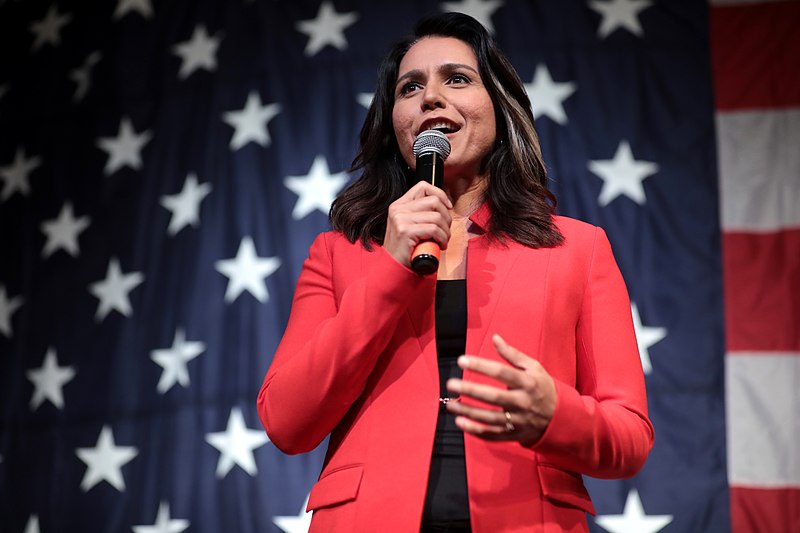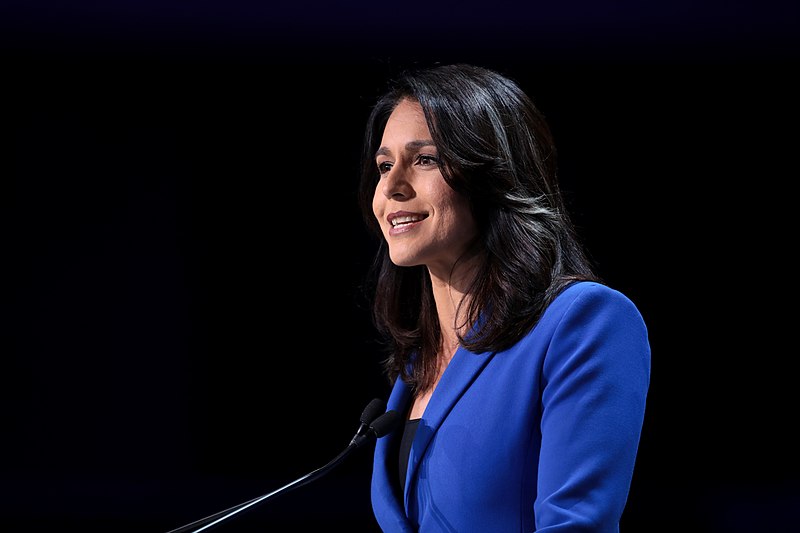Tulsi Gabbard

Tulsi Gabbard: A Political Maverick and Independent Voice
Tulsi Gabbard is one of the most unique and intriguing figures in contemporary American politics. A former U.S. Congresswoman from Hawaii, a U.S. Army veteran, and a prominent voice on the national stage, Gabbard has consistently defied easy labels. Known for her strong stances on foreign policy, her independence from party politics, and her willingness to challenge the status quo, Gabbard has become both a controversial and respected figure.Early Life and Military Service
Born in 1981 in Leloaloa, American Samoa, Tulsi Gabbard was raised in Hawaii by a family deeply committed to public service. Her father, Mike Gabbard, served as a member of the Hawaii State Legislature, and her mother, Carol Gabbard, was a philanthropist and activist. Tulsi herself enlisted in the Hawaii Army National Guard after the 9/11 attacks, motivated by a sense of duty to serve her country. Gabbard’s military service is a cornerstone of her public identity. She deployed to Iraq in 2004 as a medical operations specialist, and later served in Kuwait and other international assignments. Her firsthand experience in combat has profoundly influenced her views on foreign policy, particularly her stance on military intervention and the use of force.Political Career and Rise to National Prominence
Tulsi Gabbard’s political career began in 2012, when she was elected to the U.S. House of Representatives from Hawaii’s 2nd congressional district. At the time, she was just 31 years old and became the first Hindu and the youngest woman ever elected to Congress. During her tenure, Gabbard focused on issues like healthcare reform, environmental protection, and military accountability. But it was her positions on foreign policy that truly set her apart. Gabbard became known for her outspoken criticism of U.S. military interventions, especially in the Middle East. As a veteran herself, she argued that America’s involvement in conflicts like the Iraq War, the Syrian Civil War, and Afghanistan often caused more harm than good, both to the people in those regions and to American soldiers. Her 2016 decision to meet with Syrian President Bashar al-Assad, as part of an effort to push for peace, drew significant controversy, but also helped define her as a politician who was willing to take unpopular stances for what she believed was the greater good.2016 and 2020 Presidential Campaigns
Gabbard’s national profile rose significantly when she ran for president in 2020. Her campaign was marked by an anti-war, non-interventionist foreign policy, strong criticism of both the Democratic and Republican establishment, and a focus on unity over division. Gabbard’s early focus on issues like Medicare for All, climate change, and criminal justice reform resonated with progressive voters, while her military background and foreign policy experience helped her stand out among other candidates. However, her campaign was often overshadowed by controversies surrounding her foreign policy stance and her decision to criticize the Democratic National Committee (DNC) and party leadership. Her clash with fellow Democratic candidates, particularly with Kamala Harris during the first debate, highlighted her willingness to confront establishment figures directly. Despite a strong start, Gabbard struggled to gain traction in the crowded field and dropped out of the race in early 2020, endorsing Joe Biden.Shift Toward Independent Politics
After leaving the Democratic Party’s presidential race, Gabbard’s political trajectory took a more independent turn. In 2022, she made headlines when she announced that she was leaving the Democratic Party, citing its increasingly divisive and extreme rhetoric. Her exit from the party was framed as a rejection of what she saw as a growing disconnect between the Democratic leadership and the values of ordinary Americans. She has since described herself as a “pro-peace” independent and continues to speak out against what she perceives as the polarization and militarization of American politics. This shift in her political alignment has made Gabbard a polarizing figure. She has garnered significant support from conservative circles, where her stances on war, free speech, and civil liberties resonate, while remaining a controversial figure among her former Democratic colleagues.Key Positions and Ideological Beliefs
- Anti-Interventionism: Perhaps the defining aspect of Gabbard’s political career is her strong anti-war stance. She has consistently called for the U.S. to stop engaging in regime-change wars, advocating instead for diplomacy and peaceful solutions to global conflicts.
- Civil Liberties and Free Speech: Gabbard is a staunch defender of free speech, and she has criticized both the mainstream media and tech companies for censoring dissenting voices. She believes that the government’s role should be limited in restricting citizens’ ability to express their opinions and engage in political discourse.
- Environmental Stewardship: Gabbard has also been vocal on climate change, advocating for a “Green New Deal” and policies to transition the U.S. to clean energy, with an emphasis on protecting the environment while also creating economic opportunities for working-class Americans.
- Domestic Policy: While primarily known for her foreign policy views, Gabbard has also pushed for progressive policies at home, including universal healthcare, comprehensive immigration reform, and a more just and equitable criminal justice system.

